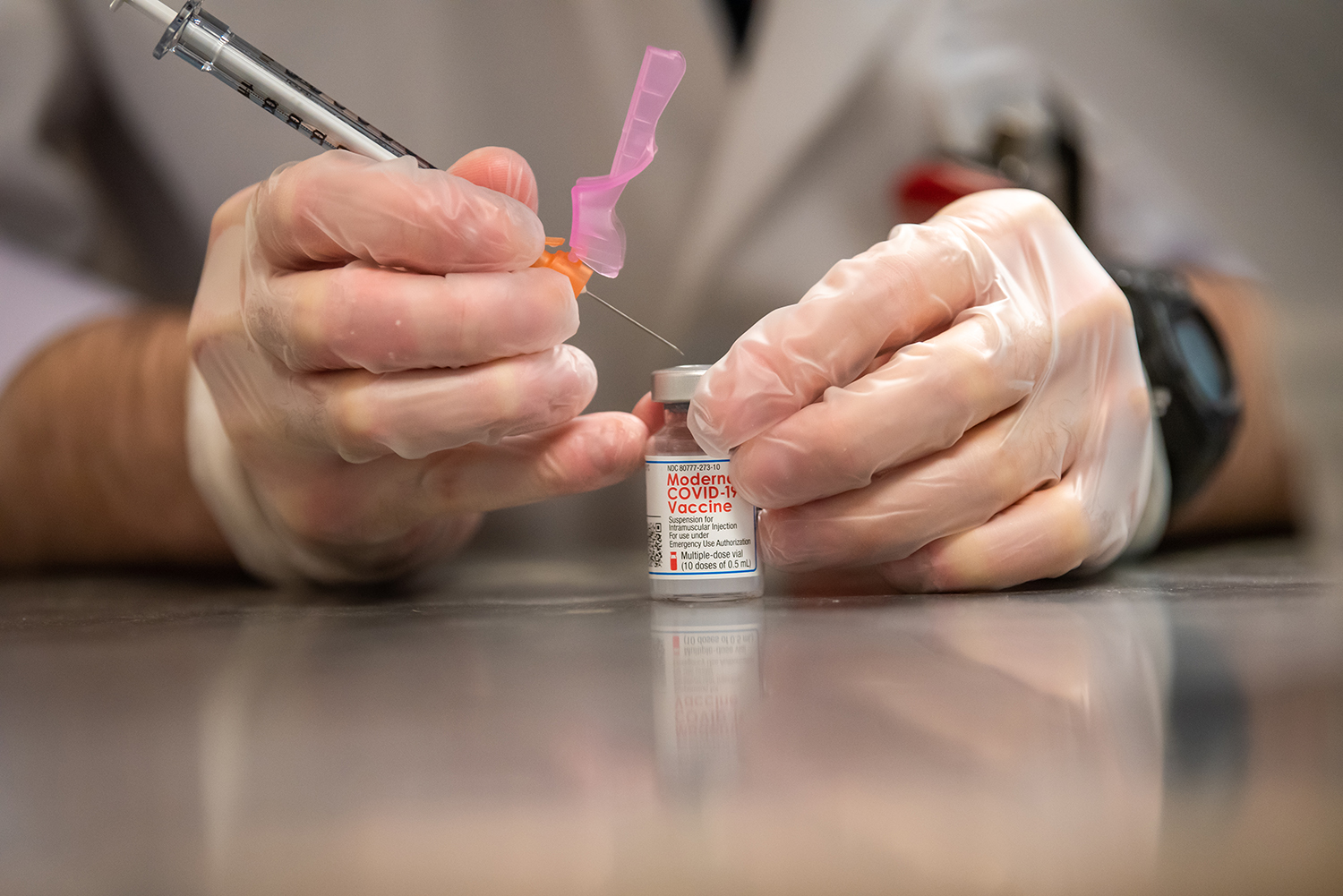COVID-19 pandemic highlights importance of logistics
by Mariah Oxford |

Every March, the Iditarod Trail Sled Dog Race reminds us of the remarkable 1925 Serum Run. That legendary emergency operation dramatically showcased Alaska’s logistical challenges in getting life-saving medicine from Anchorage by rail to Nenana and then by dog sled to Nome. Nearly 100 years later, we are in another race that requires creative thinking and well-executed logistics.
Alaska is again on the world stage, being heralded for its initial success with COVID-19 vaccine rollout. This enormous task requires sourcing vaccines from multiple vendors, with distribution in phases to all parts of the state. In 1925, mushers were careful not to allow the diphtheria anti-toxin to freeze or it would be ruined. Today’s transportation professionals have a similar (but opposite) charge: keeping the COVID-19 vaccine cold enough. In the case of the Pfizer-BioNTech vaccine, the safe range is between -112 and -70 degrees Fahrenheit.
The COVID-19 vaccine distribution highlights the role of logistics and supply chain management, a system that most people don’t notice when all is working well. Alaskans may have a bit more awareness of it due to the state’s size, isolation from the Lower 48, limited infrastructure, seismic activity and volatile weather. Being prepared and having a steady supply of necessities is an essential part of surviving here.
In fact, Alaska is the nation’s largest logistics laboratory, said Darren Prokop, professor of logistics in UAA’s College of Business and Public Policy (CBPP). At CBPP, students can earn a Bachelor of Business Administration in global logistics and supply chain management or a Master of Science in global supply chain management. Students in the undergraduate program take advantage of this natural laboratory through field trips and internships with industry leaders. The graduate program is offered entirely online, so students anywhere in the world can benefit from the Alaska perspective.
“At heart, all logisticians and supply chain managers are multi-disciplinary thinkers who handle the problem of getting things from point A to point B,” explained Prokop. “They are also very flexible in their thinking because so many internal and external changes can crop up at any minute, and this can force them to make rapid adjustments to their plans."

COVID-19 was certainly one of those external changes. The realities of operating under pandemic conditions add even more complexity to already challenging conditions. But COVID-19 has given Prokop plenty of real-world examples to illustrate textbook concepts. He’s written about many of these in the trade publication Freight Waves, including vaccine distribution, seafood supply chain, PPP loans and how airlines have adapted.
Through these examples, students understand issues like hoarding on a whole new level. They see innovative adaptations, like air carriers who began strapping cargo on empty passenger flights to offset the economic impacts of travel restrictions. And they realize the multi-faceted challenge of bringing thousands of out-of-state seafood industry workers into the state safely under pandemic conditions.
The UAA program teaches students how to understand and manage a system that is invisible to most people. They can see the complexities wrapped up in every vial of vaccine, at every stop along an Alaska distribution route that includes boats, bush planes – and yes – even dog sleds.
“If you can manage logistics in Alaska, you can manage it anywhere in the world,” said Prokop.
 "COVID-19 pandemic highlights importance of logistics" is licensed under a Creative Commons Attribution-NonCommercial 4.0 International License.
"COVID-19 pandemic highlights importance of logistics" is licensed under a Creative Commons Attribution-NonCommercial 4.0 International License.













